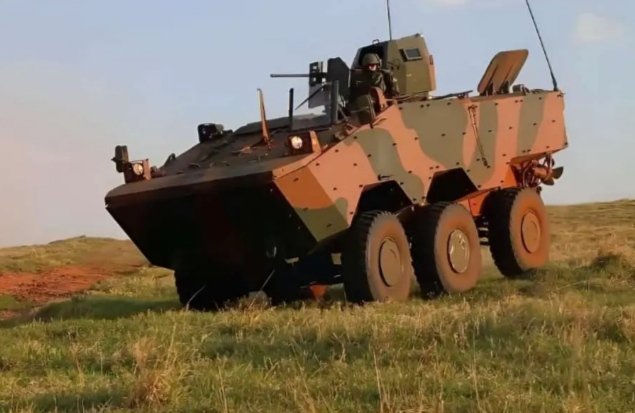
Germany lifts embargo on Philippines Iveco VBTP Guarani 6×6 APCs
According to Tecnodefensa on September 27, 2023, after months of negotiations between governments and companies, Germany officially lifted its embargo on six components used in the production of the VBTP-MSR Guarani 6×6 armored personnel carrier (APC). These components, including ballistic steel, anti-mine protection plates, periscopes, homokinetic half-shafts, transmission systems, and cooling fans, can now be exported to the Philippines.
 This embargo affected not only the Guarani vehicles but also other systems recently acquired by the Philippine armed forces. Notably, components for the Pandur II 8×8 armored combat vehicles, produced by Tatra Defence Vehicle (TDV) in the Czech Republic under license from General Dynamics European Land Systems (GDELS), were impacted.
This embargo affected not only the Guarani vehicles but also other systems recently acquired by the Philippine armed forces. Notably, components for the Pandur II 8×8 armored combat vehicles, produced by Tatra Defence Vehicle (TDV) in the Czech Republic under license from General Dynamics European Land Systems (GDELS), were impacted.
Germany’s embargo on ballistic steel plates, produced by ThyssenKrupp Steel Europe AG, will only affect the five vehicles already produced, as these plates have been replaced by Swedish Armox from SSAB Svenskt Stål AB in new production units. The Brazilian company USIMINAS Siderúrgicas de Minas Gerais SA offers USI-PROT-500 ballistic steel as an alternative, but its higher production costs justify the use of imported equivalents for contingencies.
The Guarani vehicles in question are part of a contract signed between the Philippine Army and Israeli company Elbit Systems, valued at approximately US $46 million. The contract, signed on February 7, 2021, involves the production of 28 6X6 Guarani vehicles to be delivered between 2023 and 2024. It forms part of a broader “Government-to-Government” (Gov-to-Gov) military package facilitated by the Israeli Ministry of Defense’s International Defense Cooperation Directorate (SIBAT), potentially encompassing a total of 114 Guarani vehicles.
The Philippine versions of the Guarani vehicles differ significantly from their Brazilian counterparts. These differences include the addition of ballistic protection plates to achieve level 3 protection per the STANAG 4569 standard. They are also equipped with a battle management system (-X TM) and a software-defined radio (E-LynX TM), both supplied by Elbit Systems. Additionally, these vehicles feature a remotely controlled weapon system (RCWS) developed by Elbit, designed to meet the specific requirements of the Filipino military. This RCWS is armed with either a 12.7×99 mm (.50 BMG) or a 7.62×51 mm machine gun. This variant also includes a hydraulic winch with an 18-ton capacity installed at the rear of the vehicle.
Currently, five Guarani vehicles have already been produced and are awaiting shipment upon completion of customs procedures. The remaining 23 units are in various stages of production.
The VBTP-MR Guarani is a 6×6 wheeled armored personnel carrier (APC) developed in a joint project between IVECO Defence Vehicles and the Brazilian Ministry of Defense. The goal was to create a Wheeled Medium Armored Personnel Carrier – Basic Platform (VBTP-MR). The prototype was delivered in 2009 and underwent extensive testing by the Brazilian Army from April 2010 onwards, with the intention of replacing the existing EE-11 Urutu VBTP-MR fleet.
The Guarani is an 18-tonne vehicle with amphibious capabilities, capable of carrying a crew of 10 infantrymen and a driver. The vehicle can be equipped with various weapons, including manual or remote-controlled weapon stations, such as 7.62-mm or 12.7-mm machine guns, or a 40-mm automatic grenade launcher. Some variants feature a UT30 turret with a 30 mm automatic cannon and a 7.62 mm coaxial machine gun.
This APC is designed with armor protection against small arms fire, artillery shell splinters, and landmines, thanks to its V-shaped hull. It can also be fitted with additional composite armor for enhanced protection. The vehicle’s interior is equipped with a spall liner. Propelled by a PFT diesel engine with 383 horsepower, coupled with a ZF fully automatic transmission, it achieves a maximum road speed of 100 km/h and a range of about 600 km. It can be transported by air using a C-130 Hercules and is fully amphibious, featuring two waterjets at the rear.


